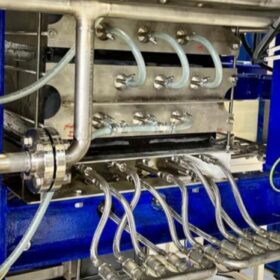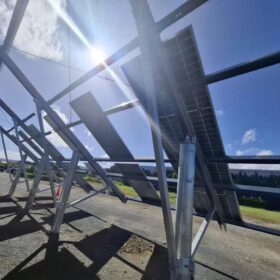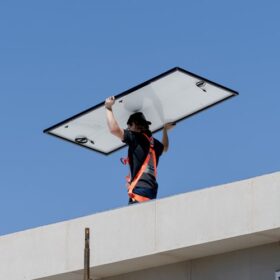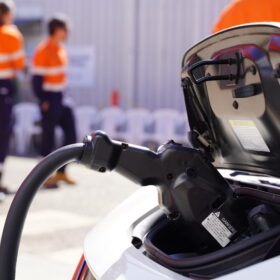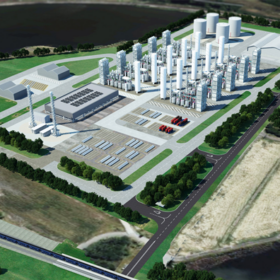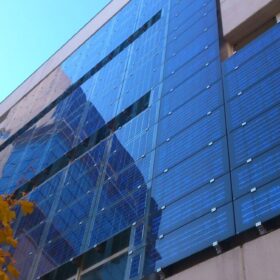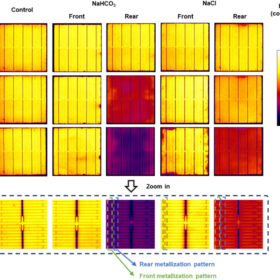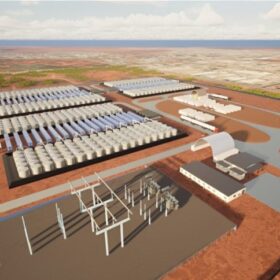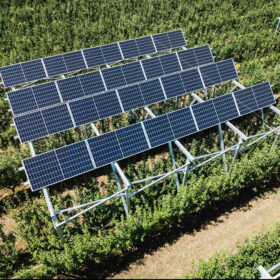WA trio receives funding to pilot ‘transformational’ approach to critical mineral production
A Western Australian trio developing a novel ‘closed loop process’ for producing high purity alumina used in lithium-ion batteries has secured a $2.87 million grant from the Australian government.
Australian company using nanomaterials for efficient, cheap hydrogen storage attracts federal funding
Australian company Rux Energy is commercialising technology that uses highly porous nanomaterials to coat tanks for hydrogen storage, claiming significant improvements to the cost, safety and efficiency of what remains a major industry barrier. It has secured funding in the Australian government’s latest round of research grants, and recently opened an office in Essex off the back of industry trials now underway in the UK.
Altech claims 55% energy capacity boost with battery anode tech
Altech Batteries says it has boosted the energy capacity of lithium-ion batteries by an average of 55% after combining graphite with alumina-coated silicon anodes.
JinkoSolar, Trina say TOPCon modules outperform p-type back-contact panels
JinkoSolar and Trina Solar have separately reported that on-field testing shows tunnel oxide passivated contact (TOPCon) solar modules outperform p-type back-contact PV modules in monthly power generation.
ARENA tips $5.4 million into community electrification trial
The federal government has committed $5.4 million in funding to support the creation of a fully electrified community on the New South Wales south coast with the pilot project to provide crucial insights on the shape of Australia’s future energy system.
CSIRO and Essential Energy to trial vehicle-to-grid tech
New South Wales distributed network service provider Essential Energy and Australia’s national science agency CSIRO have partnered to investigate how vehicle-to-grid technology can be best integrated as part of a wider home energy management system and support the energy system of the future.
Curtin finding tipped to boost solar cell performance
A group of researchers in Western Australia has discovered how to make more molecules stick to the surface of tiny semiconductor nanocrystals, in a finding they say could revolutionise the efficiency and performance of solar panels.
Newcastle port progresses clean energy precinct plans
Port of Newcastle, one of the largest coal ports in the world, is pushing ahead with its Clean Energy Precinct development, signing agreements for key design work and environmental impact studies.
Building-integrated PV system integrates PCM on sides
Scientists have designed a new building-integrated PV system that uses 30 mm of phase change material on each side of the wall. The array reportedly achieved superior thermoelectric coupling performance compared to reference BIPV systems without PCM.
New research shows vulnerability of TOPCon solar cells to contact corrosion
Researchers at the University of New South Wales claim to have identified new TOPCon contact degradation mechanisms that are significantly influenced by the combination of ions and aluminum-silver paste compositions. The primary degradation mechanism was a significant increase in series resistance.


